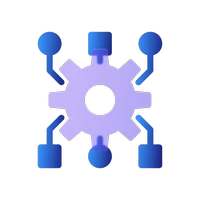
Movement
Risk Management
?Risk Management
The RMA™ is a blockchain credibility certification assessing governance, transparency, security, and results, providing trusted verification for businesses in Web3.
VaaSBlock has not audited this project and cannot vouch for this organization.
RMA™ Status: ❌ Unverified
Verification of 6 major compliance criteria.
Technology
?Technology
A collection of public facing information, data collected through partners and our own tools view we present a projects technology in one place for easy verification.
Analysis and testing of tech infrastructures.
Marketing
Alpha?Marketing
Top level look at a projects marketing capablities currently in alpha this section will grow to show quickly how a project promotes itself and the effectiveness.
Screening of user base and community feedback.
Background
?Background
Using multiple public facing sources across the web view a summary of a projects purpose, key achievements and general overview.
Collection of basic administrative documentation.
Risk Management
Last Updated
2025/4/16
Transparency
Transparency Score
Algorithmic assessment of a project’s transparency level, using multiple public data points to measure its commitment to compliance, documentation, and clarity in communication.
Transparency Score
Category Rank
A ranking that positions the organization among its industry peers, evaluating its relative performance based on key compliance, credibility, and transparency indicators.
Category Rank
Movement vs Services
VaaSBlock Rank
A global ranking that compares the organization against all entities listed on VaaSBlock, reflecting its overall credibility, transparency, and operational performance versus the full Web3 ecosystem.
VaaSBlock Rank
Movement vs All Listed Organizations
Transparency
Transparency Score
Transparency Score
Algorithmic assessment of a project’s transparency level, using multiple public data points to measure its commitment to compliance, documentation, and clarity in communication.
Category Rank
Movement vs Services
Category Rank
A ranking that positions the organization among its industry peers, evaluating its relative performance based on key compliance, credibility, and transparency indicators.
VaaSBlock Rank
Movement vs All Listed Organizations
VaaSBlock Rank
A global ranking that compares the organization against all entities listed on VaaSBlock, reflecting its overall credibility, transparency, and operational performance versus the full Web3 ecosystem.
RMA™
✘ UnverifiedCorporate Governance
The verification of fundamental governance, organizational structure, including verifying the entity’s legal registration and adherence to local laws and regulations.
Corporate
Governance

Team Proficency
Evaluation of an organization’s personnel, ensuring that crucial team members possess the expertise and dedication necessary to execute current business models and scale effectively.
Team
Proficiency

Technology & Security
Assessment of the organization’s technological framework, including blockchain integrations (where relevant), system architecture, and overall IT infrastructure.
Technology
& Security

Revenue Model
Comprehensively evaluation of a company’s income-generating strategies (how do they make or intend to make money), ensuring financial robustness and sustainability.
Revenue
Model

Results Delivered
The Results Delivered component of the RMA™ audit comprehensively evaluates an organization’s ability to achieve its goals and honor its commitments.
Results
Delivered

Planning & Transparency
The Planning and Transparency component of the RMA™ audit offers a thorough assessment of how an organization manages its workflow and prepares for unexpected challenges.
Planning &
Transparency

Technology
Marketing
Marketing Effectiveness
This score assesses the impact of detected marketing activity and the corresponding price movement of a token. The score understands whole market movements to ensure tokens are assessed fairly against peers.
Marketing Effectiveness
Confidence Index
This index determines our confidence in the score we have given. Generally, as more data is collected, the confidence index will increase. If a project has lots of activity, this confidence is earned faster.
Confidence Index
VaaSBlock Rank
This identifies where a project sits compared to all projects accessed for Marketing Effectiveness.
VaaSBlock Rank
Movement vs All Listed Organizations
Marketing Effectiveness
Marketing Effectiveness
This score assesses the impact of detected marketing activity and the corresponding price movement of a token. The score understands whole market movements to ensure tokens are assessed fairly against peers.
Confidence Index
Confidence Index
This index determines our confidence in the score we have given. Generally, as more data is collected, the confidence index will increase. If a project has lots of activity, this confidence is earned faster.
VaaSBlock Rank
Movement vs All Listed Organizations
VaaSBlock Rank
This identifies where a project sits compared to all projects accessed for Marketing Effectiveness.
No Chain No Gain™ Podcast ⛉
This Organization is yet to join the No Chain No Gain™ Podcast and share insights on what makes their business trustable and innovative.
💡 NCNG generated over 1 Million impressions in its first six months of existence.
PR Impact
PR Impact
VaaSBlock provides estimations to the impact that traditional digital media can have on a project. This is an early release; more areas of PR are planned in future versions.
Search Terms ? Search TermsThese are the terms we discovered the article for on page one of Google. | Est. Traffic ? Estimated TrafficWe estimate how much traffic an article will get. Generally, our estimations are slightly higher than those of more established tools. We are working on the algorithm all the time, and results could change. | Est. Value ? Estimated ValueBased on the estimated traffic we generate an estimation for what this traffic would have cost to generate if you tried to target these users with ads. The positions for the article on google and the location of the traffic are the major factors in this estimation. | |||
|---|---|---|---|---|---|
音楽作家事務所 | MOVEMENT PRODUCTION【作曲家・アーティストマネジメント】 source: movementproduction.jp | 音楽作家事務所 | MOVEMENT P… — 音楽作家事務所 | MOVEMENT PRODUCTION【作曲家・アーティストマネジメント】 source: movementproduction.jp | Organic | movementproduction.jp | ||
What Is Movement Move And How Does It Work source: Bitget | What Is Movement Mov… — What Is Movement Move And How Does It Work source: Bitget | bitget.com | |||
Ecosystem source: Movementnetwork | Ecosystem… — Ecosystem source: Movementnetwork | Organic | movementnetwork.xyz | ||
Movement source: Kraken | Movement… — Movement source: Kraken | kraken.com |
| Est. Traffic | Est. Value | ||
|---|---|---|---|
音楽作家事務所 | MOVEMENT P… — | |||
What Is Movement Mov… — | |||
Ecosystem… — | |||
Movement… — |
Background
Organization Name – Movement
Category –  Services
Services
About
powered by irmaAI
irmaAIMovement Labs, founded in 2022 by Vanderbilt dropouts Rushi Manche and Cooper Scanlon, describes itself as a San‑Francisco‑based “infrastructure studio” intent on making the Move p…rogramming language—originally created for Meta’s ill‑fated Diem project—the standard for safer smart contracts, and it pursues that goal through M2, a Layer‑2 that runs the Move Virtual Machine yet settles to Ethereum while outsourcing data availability to Celestia’s Blobstream and piggy‑backing on EigenLayer restaked security; they claim this architecture yields deterministic parallel execution, formal‑verification‑friendly bytecode and throughput “beyond 145,000 transactions per second,” a performance figure that remains unverified by independent testers, although marketing materials routinely compare it with Ethereum’s sub‑20 TPS ceiling. The company pitches M2 as merely the gateway to a wider Movement Network of modular, interoperable Move‑based rollups and sovereign chains that can mix‑and‑match settlement, DA and sequencing modules through what it calls the “Move Stack” toolkit, which bundles a CLI, SDK, Move Prover integrations and a turnkey audit pipeline; observers have noted that this vision resembles Cosmos or Polygon’s CDK but swaps Solidity for a resource‑oriented language that theoretically prevents double‑spends and re‑entrancy at compile time. Polychain Capital led a $38 million Series A in April 2024, and outlets such as Fortune later reported that the team is courting $100 million in Series B financing at a valuation near $3 billion, a leap that—if closed—would place the still‑pre‑mainnet venture in the same valuation band as long‑running rollup incumbents. Movement has since disclosed an undisclosed strategic cheque from Binance Labs, while data tracker Tracxn tallies total funding at roughly $41 million.
Technically, Move borrows ideas from Rust and linear‑type theory so that every token is treated as a first‑class “resource” that cannot be duplicated or lost; Movement touts this as an answer to the $5.4 billion in DeFi exploits recorded between 2022 and 2023 and argues that pairing Move’s compile‑time guarantees with Ethereum liquidity removes entire classes of attacks common to Solidity. To lure developers across that language divide, the firm runs a Move Collective accelerator, hackathons with up to $2 million in prizes, and a global road‑show that, they claim, has seeded an unverified community of “10,000‑plus” Move builders—figures echoed in APAC‑focused press releases but not corroborated by GitHub statistics. A developer‑only mainnet went live in January 2025, giving teams a sandbox ahead of a promised public beta, and documentation says future chains spun up with the Move Stack will support Celestia, EigenLayer, AltLayer or other modules “out of the box,” though the multichain bridge that must connect them remains under audit.
Economically, the ecosystem revolves around the MOVE token, first airdropped in December 2024 and used for gas, delegated sequencer staking and governance; Binance listed the asset at launch, but on May 1 2025 Coinbase announced it will suspend MOVE trading on May 15, triggering a 14 % slide. That news landed alongside Movement’s own revelation that co‑founder Manche had been suspended pending an external probe into allegations that a market maker tied to Web3Port secretly amassed and dumped over 5 % of supply, a scandal the team insists did not touch treasury funds yet one that critics say underscores governance gaps in a firm selling itself on risk reduction. Road‑maps circulated on Discord still target an M2 mainnet in Q3 2025 followed by a MoveVM upgrade that grafts zero‑knowledge proofs onto parallel execution for faster bridge finality and a third wave of ecosystem grants worth up to $20 million in early 2026, but prior milestones have slipped and crucial components such as the Celestia integration and canonical bridge have only just entered testing; until those pieces harden—and until the company substantiates its unverified claims of developer traction, throughput and security—Movement Labs remains a heavily funded, technically ambitious project whose ultimate impact hinges on timely delivery, transparent governance and demonstrable real‑world performance. Read More
Creation Date
February 2026
Headquarters
San Fransico, United States
Organization Maturity Level
Early-Stage
RMA™ Type
None
Useful Links
Website – movementlabs.xyz
Notable Achievements
N/A
- vaasblock.com /
- Services /
- Movement













